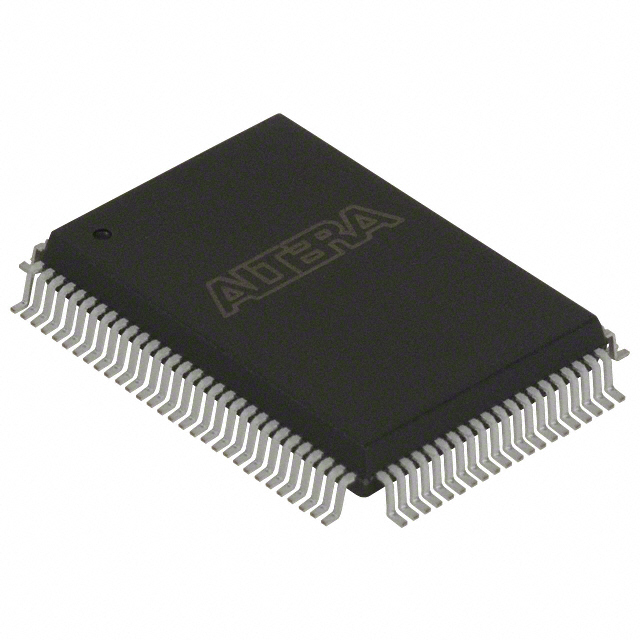In Stock : 0
Please send RFQ , we will respond immediately.









EPM7128EQC100-15 Specifications
-
TypeParameter
-
Supplier Device Package100-PQFP (20x14)
-
Package / Case100-BQFP
-
Mounting TypeSurface Mount
-
Operating Temperature0°C ~ 70°C (TA)
-
Number of I/O84
-
Number of Gates2500
-
Number of Macrocells128
-
Number of Logic Elements/Blocks8
-
Voltage Supply - Internal4.75V ~ 5.25V
-
Delay Time tpd(1) Max15 ns
-
Programmable TypeEE PLD
-
DigiKey ProgrammableNot Verified
-
PackagingTray
-
Product StatusObsolete
-
SeriesMAX® 7000
The EPM7128EQC100-15 is a specific type of integrated circuit chip known as a Complex Programmable Logic Device (CPLD). Here are some advantages and application scenarios of this chip:Advantages: 1. Versatility: The EPM7128EQC100-15 offers a high level of flexibility and can be programmed to perform a wide range of functions. 2. Integration: It integrates multiple logic functions into a single chip, reducing the need for additional components and simplifying circuit design. 3. Low power consumption: The chip is designed to operate efficiently with low power requirements, making it suitable for battery-powered devices. 4. Fast operation: It offers high-speed performance, enabling quick execution of complex logic operations. 5. Non-volatile memory: The chip retains its programmed configuration even when power is removed, ensuring that the desired logic functions are maintained.Application scenarios: 1. Digital circuit design: The EPM7128EQC100-15 can be used in various digital circuit applications, such as data processing, control systems, and signal processing. 2. Prototyping and testing: It is commonly used in prototyping and testing stages of electronic product development, allowing engineers to quickly implement and evaluate different logic functions. 3. Industrial automation: The chip can be employed in industrial automation systems for tasks like process control, monitoring, and data acquisition. 4. Communication systems: It can be utilized in communication systems for functions like data routing, protocol conversion, and error detection. 5. Consumer electronics: The chip can be integrated into consumer electronic devices, such as gaming consoles, home appliances, and audio/video equipment, to provide customized logic functions.It's important to note that the specific application scenarios may vary depending on the requirements and capabilities of the overall system design.
















